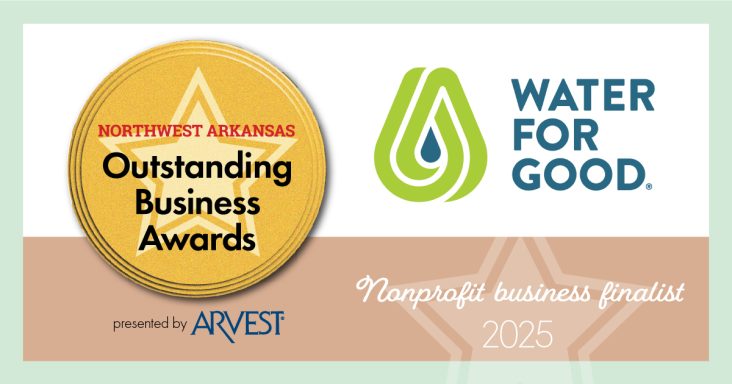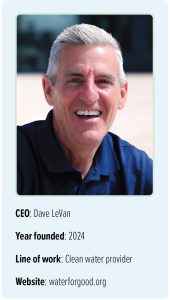Water for Good
by April 7, 2025 9:30 am 262 views

About 713 million people globally don’t have access to reliable water, or about one in 12 people on Earth. That number balloons to one in four when the number of people who have access to water sanitation is factored in.
Two organizations that were tackling this problem, Lifewater International and Water for Good, merged in 2024 to provide more effective and efficient WASH (water, sanitation and hygiene) services to the people of Cambodia, the Central African Republic, Ethiopia, Tanzania and Uganda.
From the start, Water for Good focused on equipping local people to maintain their own water access points, ensuring sustainability for generations. This year marks 20 years of service in the Central African Republic. Lifewater focused on hygiene and sanitation education.
“As a combined organization, we are expanding our reach to serve communities who long for the hope and opportunities only water, sanitation and hygiene together can bring,” according to the nonprofit.
The primary goal of the organization is to ensure that no one dies from a preventable WASH-related disease. In partnership with area churches and leaders, it helps communities establish access to reliable water and critical sanitation and hygiene practices ensuring sustainable change, empowered citizens and healthy futures.
 “Every two minutes, a child under the age of 5 dies from a preventable WASH-related disease … Women and children are particularly disadvantaged, often spending hours collecting water that may not even be safe to drink. It affects health, hinders education, perpetuates poverty, and deepens inequality,” according to the organization.
“Every two minutes, a child under the age of 5 dies from a preventable WASH-related disease … Women and children are particularly disadvantaged, often spending hours collecting water that may not even be safe to drink. It affects health, hinders education, perpetuates poverty, and deepens inequality,” according to the organization.
The combined organizations have impacted more than 1.1 million people who didn’t have access to clean water.
In 2024, Water for Good installed 223 water points. More than 55,000 people were given access to clean water. Through the Vision of a Healthy Village program, about 49,000 graduates learned about life-saving hygiene and sanitation.
More than 7,000 students now have access to safe water and proper latrine blocks at their schools, allowing them to focus on learning instead of searching for water or safe bathrooms. About 148 water committees promote sustainable hygiene and sanitation practices within their communities. Childhood diarrhea has declined by 90% in the communities the organization serves.
“No matter where we work, we approach every project with a commitment to sustainability, innovation, and locally-led community involvement that leads to long-lasting change,” the organization noted. “When access to reliable water and improved sanitation and hygiene is established, the impact is nothing short of remarkable.”
Editor’s note: This company is a finalist for the Northwest Arkansas Outstanding Business Awards — Nonprofit Business category. Winners will be announced at a luncheon on April 9.
